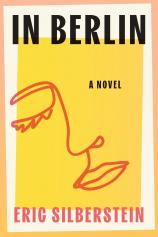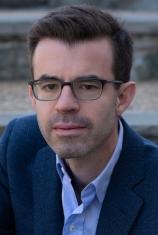Reading Group Guide
Discussion Questions
In Berlin

1. The challenges Anna and Batul face in pursuing their dreams can feel extreme, but they are hardly alone in coping with political upheaval or medical emergencies. What personal or family stories do you have about lives interrupted through migration, illness or other sudden changes in circumstances?
2. Resilience is a revered quality these days, and Anna, Batul and Yaman all demonstrate an impressive ability to regain footing after setbacks big and small. But how might resilience sometimes underserve the characters, for example by letting them avoid problems that need addressing?
3. Eric Silberstein wrote this novel before the overthrow in 2024 of Syrian dictator Bashar al-Assad, more than five decades into his regime’s brutal rule. Many Syrian refugees are now returning to the homeland they once fled. Can you imagine Batul and Yaman moving back? Why or why not?
4. Often in literary criticism, a character’s depth is measured by their dynamism --- how much a “hero” is changed by his or her experience, for example. While Anna has tremendous change thrust upon her, one could argue that she changes very little in terms of how she views the world or operates within it. Do you think this is a weakness of the book?
5. “One can think more lightly and freely in music than language” is Batul’s translation of the line by Alfred Döblin, author of the seminal 1929 novel BERLIN ALEXANDERPLATZ. This is not Batul’s experience. Instead, food is her language when speaking is too hard. How do Julia, Anna’s father, or Anna herself communicate through mediums other than their native tongue?
6. Religious faith is clearly important to Batul, but other characters also orient themselves using (sometimes blind) belief. What do you think Anna’s articles of faith might be? Yaman’s? Anna’s sister-in-law Christina’s?
7. Berlin’s role in the novel is often aspirational: a setting in which Anna can once again be independent, or where the al-Jaberis might rebuild a life. But the city’s dark history during the Second World War, and its status as seat of the present-day German government, also enters the plot from time to time. How would the novel be different if set in London or New York?
8. In some ways, this is a workplace novel (even in Anna’s apartment, Batul is on the job). Why do you think Silberstein spends as much time as he does on DDB’s big project of upgrading its platform? And are Batul, Anna and even Yaman being naïve or narrow-minded for focusing so much on professional success?
9. How important to her recovery was Anna’s logical way of thinking? Leo, the economist who broke his neck trying to save a drowning child, also prides himself on his ability to reason. But he comes to very different conclusions from Anna, even when drawing from similar evidence. Do you think the novel invites us to extrapolate from single cases or warns against it?
10. Spoiler warning: Batul tells Yaman that “it’s not that simple” when he asks her if she’s “programmed a certain way.” She describes feeling relieved when it becomes clear that her parents want her to accept Yaman’s proposal. Does this suggest she never planned a long-term romantic partnership with Anna?
11. Spoiler warning: By the end of the book, science and technology have solved many of the problems delivered to Anna on that sweaty August evening in 2014. Did Batul save Anna by turning her observations of axolotls into actionable scientific insights, or much earlier, back in Berlin, with the love that also saved Yaman? Or was Anna always going to save herself?
— Written by Rose Jacobs
In Berlin
- Publication Date: August 5, 2025
- Genres: Fiction
- Paperback: 312 pages
- Publisher: Liu Book Group
- ISBN-10: 1737351994
- ISBN-13: 9781737351993







